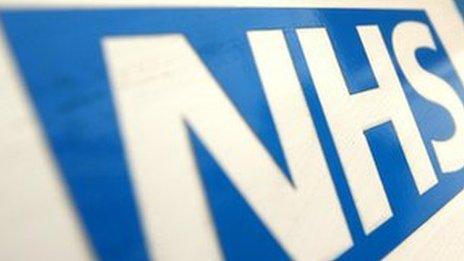NHS funding increase tough but possible, Jeremy Hunt says
- Published
Simon Stevens, the head of NHS England, has suggested a range of measures, including creating larger GP practices
Raising NHS spending in England - as demanded in a report by health bosses - would be tough but was possible within a strong economy, Jeremy Hunt has said.
A five-year plan warned the NHS would need an extra £8bn by 2020 along with new arrangements such as letting GP practices offer hospital services.
The health secretary said the Tories could "deliver an NHS people want" but it would take "difficult decisions".
Labour said a failure to increase NHS budgets risked a "full-blown crisis".
It comes as a report - called the NHS Forward View - again highlighted that an annual £30bn shortfall would open up in the next Parliament.
Health Secretary Jeremy Hunt welcomes the report as "positive" but recognises there are "big, big challenges"
It said a programme of changes - including GPs offering hospital facilities - would help to plug a large part of the funding gap, but warned the NHS would still need above-inflation rises of 1.5% over the coming years.
That works out at an extra £8bn a year above inflation by 2020.
Greater efficiency savings
Speaking to the BBC, Mr Hunt said the government had increased funding to the NHS by about £5bn during this Parliament.
The Conservatives were committed to "protecting and increasing" NHS funding in real terms, he added.
"A strong NHS needs a strong economy - then it is possible to increase spending this report calls for," he said.
"We will need to find greater efficiency savings. It will be tough to do so, and don't underestimate the challenge."
£100bn
NHS England budget for 2014-15
£30bn
Shortfall predicted by 2020
-
That could fund 100 hospitals
-
New ways of working could save £22bn
-
But NHS still needs an extra £8bn
The Conservative chairman of the Commons health select committee, Dr Sarah Wollaston, said pressure on the NHS would be eased if the public were helped to look after themselves better.
"What we want to achieve is better care for people and so we should look at all the possible mechanisms to make that happen. But I think yes, incentives to help people live healthier lifestyles," she said.
"The use of incentives to actually put forward that whole public health agenda, I think that's really important and crucial to making the NHS finances work."
However, Labour's shadow health minister Andy Burnham - who tabled an urgent Commons question on the report - said current Tory funding plans raised "the spectre of rationing, longer waits and charges".
"The report could not be clearer; simply protecting the NHS budget in the next Parliament - as the Conservatives propose - will not prevent it tipping into a full-blown crisis," he told the Commons.
He said some of the proposals were ideas Labour had already suggested.
In reply, Mr Hunt accused Mr Burnham of "houdini-like spin" for claiming the NHS was at the point of collapse.
The Liberal Democrats have pledged to make sure the budget rises by more than inflation.
Hospital franchises
The report said the future of the health service depended on it becoming more efficient. To achieve this, it called for a rethink about the way services were delivered.
It put forward a range of models - although stressed it was up to each local area to decide which ones to adopt.
These include:
Large GP practices to employ hospital doctors to provide extra services, including diagnostics, chemotherapy and hospital outpatient appointments
In areas where GP services are under strain, hospitals could be encouraged to open their own surgeries
Smaller hospitals to work as part of larger chain, sharing back-office and management services
Larger hospitals to open franchises at smaller sites, as Moorfields Eye Hospital has done in London
Hospitals to provide care direct to care homes to prevent emergency admissions
Volunteers could be encouraged to get more involved, by offering council-tax discounts
Many of these measures are designed to curb the rise in hospital admissions and impact of the ageing population - the source of most pressure in the health service.
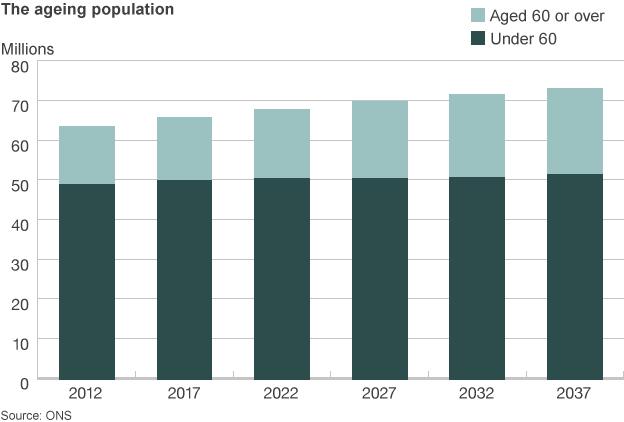
But the report - produced by NHS England, Public Health England, the regulator Monitor, the NHS Trust Development Authority, Care Quality Commission and Health Education England - said more needed to be done to reduce obesity, smoking and drinking rates.
It suggested employers should be encouraged to encourage their staff to become healthier by taking steps such as offering them shopping vouchers for healthy behaviour.

Case study: Working with care homes
Nurses and doctors from Airedale Hospital in West Yorkshire have set up video link-ups with local care homes.
It allows consultations to take place with residents on everything from cuts and bumps to diabetes management.
Emergency admissions from these homes have fallen by 35% and A&E attendances by 53%.

Meanwhile, councils could play their part by using their powers in areas such as planning and licensing to limit the opening of junk food outlets and the sale of cheap high-strength alcohol, it adds.
Simon Stevens, chief executive of NHS England, the lead body for Forward View, said the NHS was at a "crossroads".
NHS England chief executive Simon Stevens: NHS "must fundamentally change"
"We have no choice but to do this. If we do it a better NHS is possible; if we don't the consequences for patients will be severe," he said.
He said there was no reason why a tax-funded NHS would not continue if the plans outlined were followed.

Case study: The GP super-practice
Whitstable Medical Practice, in Kent, is one of the new super-practices that are being developed. It offers the traditional GP services alongside a host of services more associated with hospitals.
It operates out of three sites and employs nearly 150 staff, providing care for 34,000 people.
It runs maternity services, a minor injury unit with X-ray facilities and dedicated diabetes, heart disease and asthma clinics as well as diagnostics and minor surgery.

NHS medical director for England Sir Bruce Keogh warned patients would lose out if the NHS could not make the appropriate funding and support it needed.
"There is a risk, as outlined in the report, that services may have to change or even be cut, that we will have shortages of staff, that we will have issues with waiting times and that there is a risk that we will have to restrict treatments," he said.
However, Nigel Edwards, the chief executive of the health think-tank the Nuffield Trust, said there were questions about whether the NHS could make such large efficiencies.
"This isn't just a little trimming at the edges; this will require people to re-think how they run their services," he said.

Do you work for the NHS? Or are you a patient? Will giving the NHS extra money help improve services? Share your experience by emailing haveyoursay@bbc.co.uk, external.
- Published23 October 2014
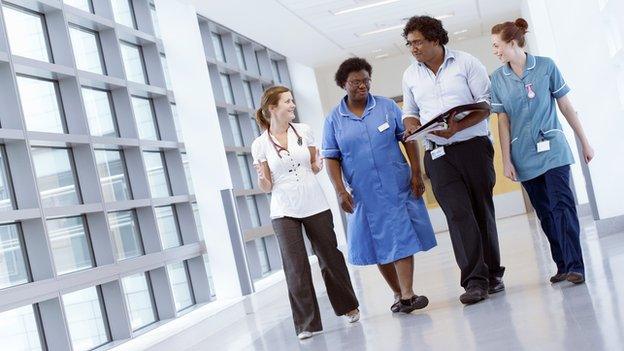
- Published22 October 2014
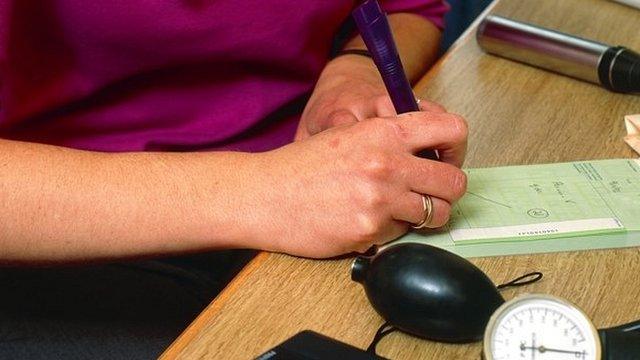
- Published23 October 2014
- Published23 October 2014
- Published23 October 2014
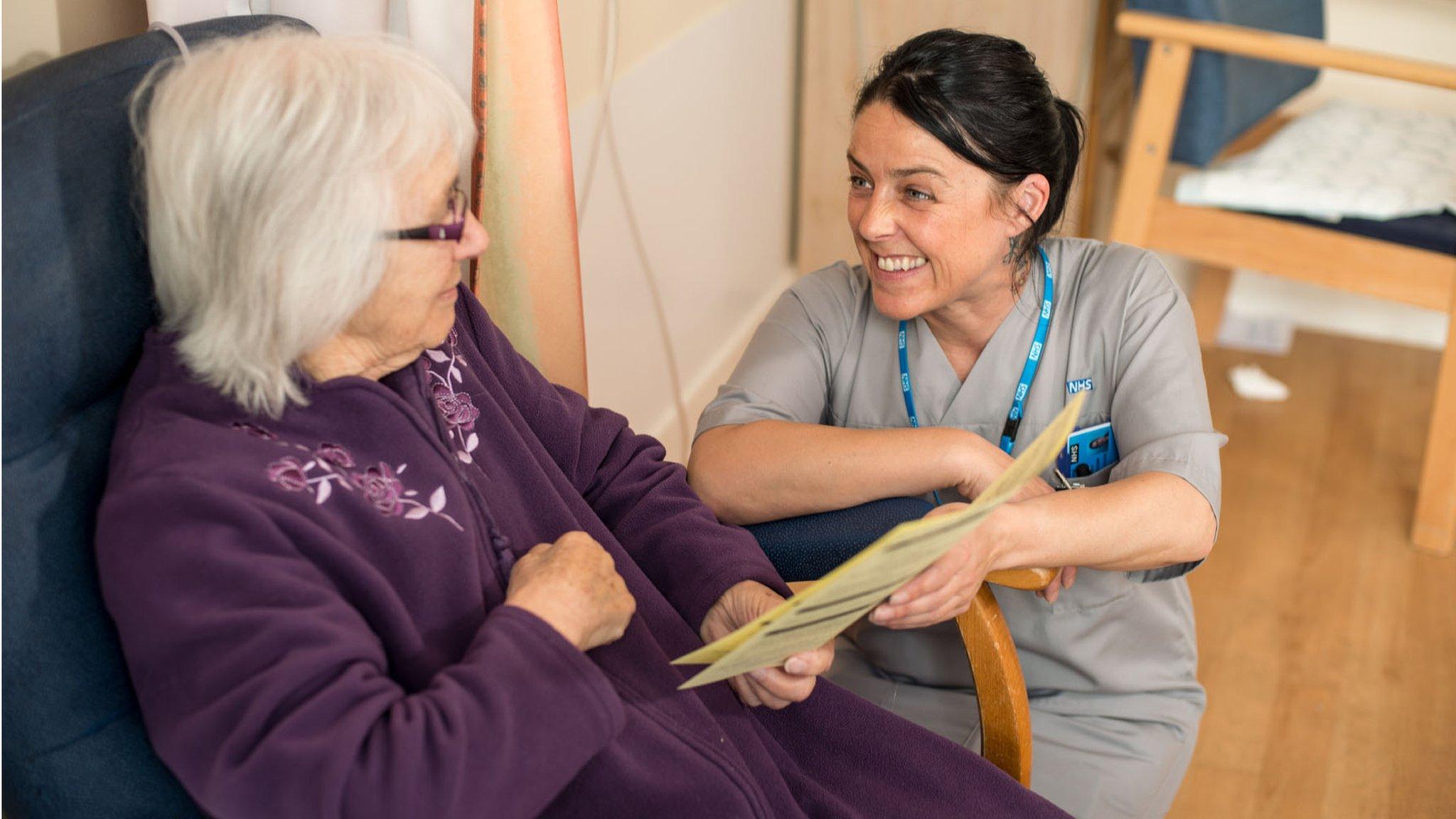
- Published19 September 2014

- Published10 July 2014

- Published7 July 2014
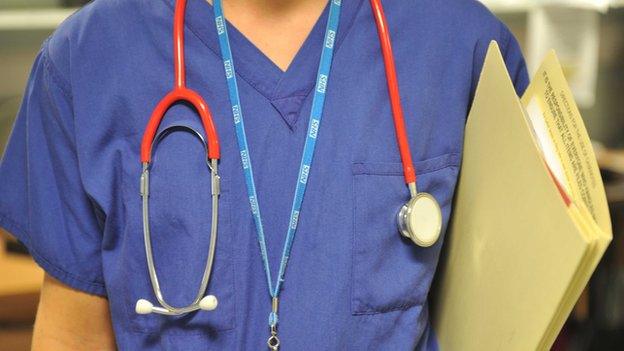
- Published29 June 2014
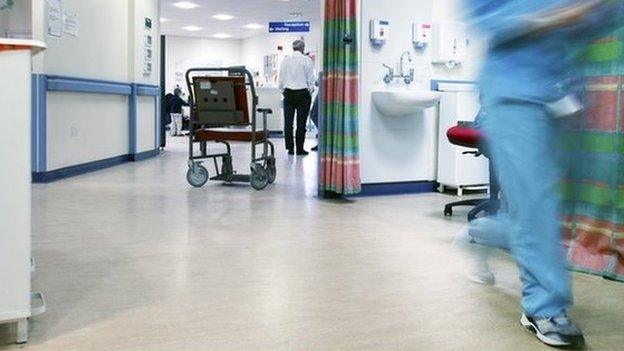
- Published18 June 2014
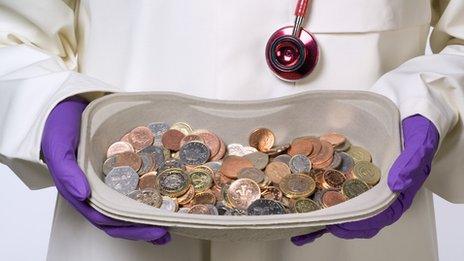
- Published1 April 2014
